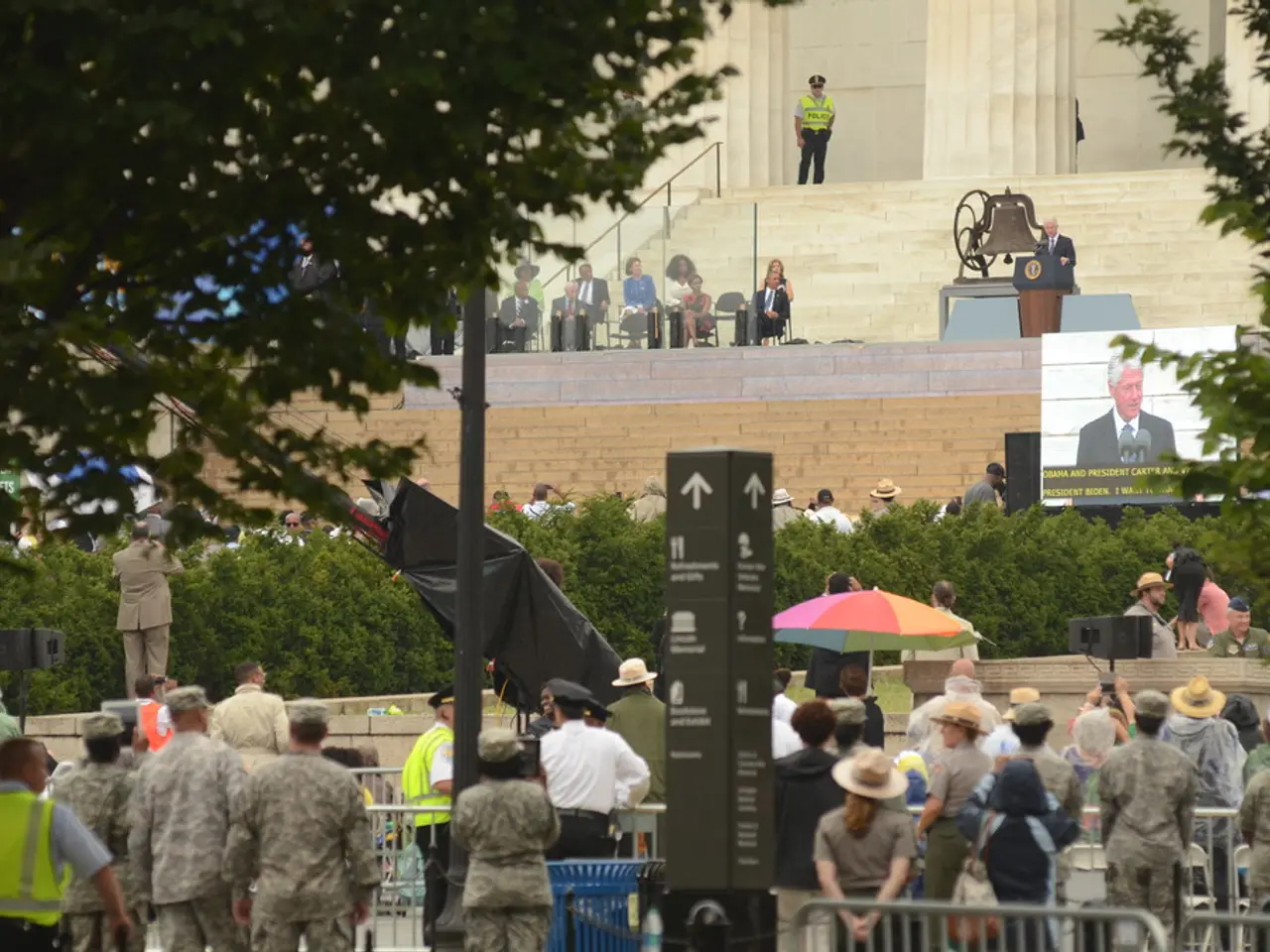Republican Senators endorse Trump's tax reduction and expenditure bill following a thrilling late-night vote.
Late Saturday saw the Senate Republicans push through a critical procedural step, narrowly clearing the way for President Donald Trump's tax package to advance. Vice President JD Vance was on hand at the Capitol to break any potential ties. The night was turbulent, with prolonged voting delays and tense scenes amid huddled holdout senators engaging in private negotiations off the floor.
In the end, two Republicans opposed the motion to proceed, joining the Democratic chorus of opposition. The bill, if passed, would extend approximately $3.8 trillion in Trump tax breaks, with national security receiving a commitment of $350 billion, including funds for Trump's mass deportation agenda.
The Republican-led push to bypass Democratic objections has been marred by a series of political and policy setbacks. Not every GOP lawmaker supports proposals to reduce spending on Medicaid, food stamps, and other programs as a means to cover tax breaks costs.
As the bill undergoes all-night debate and amendments in the coming days, pressure has been mounting from all angles. Elon Musk has viciously criticized the package as "utterly insane and destructive."
With narrow Republican majorities in the House and Senate, leaders need almost every lawmaker on board to confront essentially unified opposition from Democrats. Senate Democratic leader Chuck Schumer of New York has accused the Republicans of unveiling the bill "in the dead of night" and rushing to finish it before the public fully understands its content. He took matters into his own hands by forcing a full reading of the text in the Senate, an effort that would take hours.
This late-night legislative drama may prove to be a make-or-break moment for Trump's party, whose political capital has been invested heavily in the signature domestic policy plan. Some critics, such as Senator Thom Tillis of North Carolina, have voiced concerns over the potential Medicaid cuts they worry will leave many North Carolinians without healthcare. Tillis and Senator Rand Paul of Kentucky have spoken out against the bill.
Despite the internal strife, the bill's supporters remain optimistic. As the roll call teetered, attention turned to Senator Lisa Murkowski of Alaska, who was in intense conversations with GOP leaders. Upon voting to proceed, Murkowski signaled ongoing negotiations. Republican leaders continue to woo holdouts, with Vice President Vance personally leaning on senators to fall in line and support the bill.
This dramatic late-night session represents a pivotal moment for the President's tax agenda, but it remains to be seen if the Republicans will be able to overcome internal divisions and outside criticism to send a finalized version of the bill to the White House.
- The government's critical procedural step for the tax package advancement was pushed by Senate Republicans, with Vice President JD Vance breaking ties when necessary.
- Hospitals and other social programs face reductions in spending to cover the costs of Trump's tax breaks, as outlined in the bill.
- The business community has shown mixed support for the tax package, with Elon Musk criticizing it as "utterly insane and destructive."
- Amazon, other corporations, and general news platforms are closely monitoring the legislative drama surrounding the tax bill.
- The politics of the situation has led to tensions, with Senate Democratic leader Chuck Schumer accusing Republicans of rushing the bill and forcing a full reading of the text in the Senate.
- Alongside political strife, there are concerns in the health care sector, with some senators worried about the potential impact of Medicaid cuts on their constituents.
- Seattle and other cities could experience migration due to changes in tax policies and resulting economic effects, given the bill's potential passage.
- War-and-conflicts and policy-and-legislation outlets are following the Senate's nighttime debate and amendments, as they may have implications for national security spending.
- Car accidents, fires, and other emergencies may face reduced response times due to budget cutbacks in first response services, should the tax bill be passed.
- The sports world, including football (both NFL and NCAA), has shown minimal engagement with the ongoing tax drama, focusing instead on competition and games.





